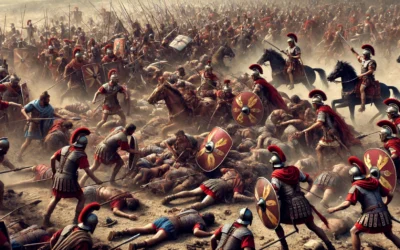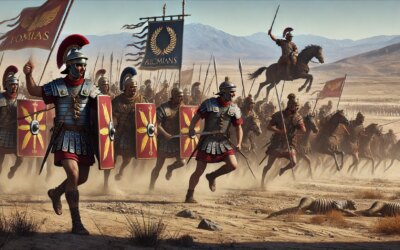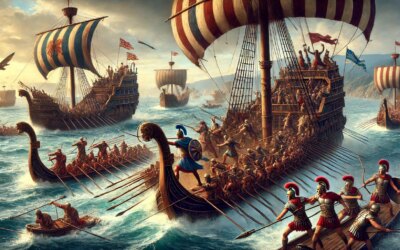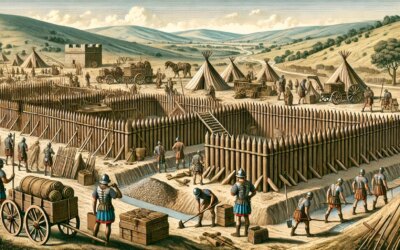Introduction
Few military campaigns in history rival Hannibal’s daring march across the Alps in 218 BCE. As Rome’s greatest adversary, Hannibal Barca, the Carthaginian general, executed a breathtaking maneuver that brought his army, including war elephants, into Italy. This unexpected strategy shocked the Roman Republic and set the stage for one of the most intense conflicts of the ancient world—the Second Punic War.
The Outbreak of the Second Punic War
The conflict between Rome and Carthage reignited after Hannibal seized Saguntum, a Roman ally in Iberia. Declaring war, Rome expected Carthage to engage in a naval confrontation or fight in Spain. Instead, Hannibal devised a bold strategy: an overland invasion of Italy through the Alps, bypassing Rome’s superior navy.
Assembling the Army
Hannibal’s forces were diverse, consisting of Carthaginians, Iberians, Numidians, and Celts. He set out from Spain with approximately 50,000 infantry, 9,000 cavalry, and 37 war elephants. Despite the challenges ahead, his troops remained loyal, driven by Hannibal’s extraordinary leadership and vision.
The Perilous Journey Through the Alps
The crossing of the Alps remains one of the most daring feats in military history. Over 15 days, Hannibal’s army faced treacherous mountain passes, brutal cold, and relentless attacks from hostile tribes. Many soldiers and elephants perished, yet Hannibal’s determination never wavered.
Survival Against the Odds
Despite losing nearly half his army to the harsh conditions, Hannibal’s forces emerged on the Italian side of the Alps battle-hardened and ready to challenge Rome. The sheer resilience of his troops demonstrated his brilliance as a commander.
Hannibal’s Impact on the Roman Republic
Rome, unprepared for an enemy invasion from the north, scrambled to defend itself. Hannibal’s victories at the Trebia River, Lake Trasimene, and Cannae shook the Republic to its core. His tactics, particularly the use of encirclement at Cannae, became legendary and are still studied in military academies today.
The Legacy of Hannibal’s March
Though Hannibal never captured Rome, his strategic genius left an enduring mark on military history. His journey through the Alps remains a testament to leadership, resilience, and innovation in warfare.
Conclusion
Hannibal’s march across the Alps was not just a military maneuver; it was a statement of defiance against Rome’s dominance. His campaign proved that bold strategy could overcome even the mightiest empires, cementing his place among history’s greatest generals.






